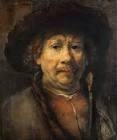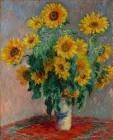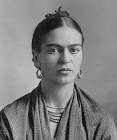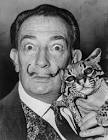Pablo Picasso – Revolutionary Artist, Innovator, Family Man, Net Worth
Pablo Picasso was a name synonymous with modern art, creativity, and boundless imagination. Born on October 25, 1881, in Málaga, Spain, Pablo Diego José Francisco de Paula Juan Nepomuceno María de los Remedios Cipriano de la Santísima Trinidad Ruiz y Picasso, to be known as Pablo Picasso, was a visionary artist who reshaped the artistic landscape of the 20th century. His unmatched artistic prowess earned him the reputation of being one of the most influential artists of his time.
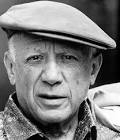
Personal Information
| Full Name | Pablo Diego José Francisco de Paula Juan Nepomuceno María de los Remedios Cipriano de la Santísima Trinidad Ruiz y Picasso |
|---|---|
| Nick Name / Stage Name | Pablo Picasso |
| Born | October 25, 1881, Málaga, Spain |
| Died | April 8, 1973, Mougins, France, 91 Years Old |
| Age | 91 |
| Gender | Male |
| Zodiac Sign | Scorpio |
| Hometown | Málaga, Spain |
| Nationality | Spanish |
| Years Active | 70 years |
| Marital Status | Married |
| Husband/Wife | Olga Khokhlova, Jacqueline Roque |
| Children | Paulo Picasso, Maya Widmaier-Picasso |
| Political Affiliation | Communist Party, Political Activist |
| Alma Mater | Royal Academy of San Fernando, Madrid |
| Profession | Painter, Sculptor, Printmaker, Ceramicist, Stage Designer |
| Net Worth (approx.) | $500 Million |
| Debut | 1901, First Exhibition in Paris |
| School | La Lonja School of Fine Arts, Barcelona |
| College | Royal Academy of San Fernando |
| Education Qualification / Degree | Fine Arts Degree |
| Hobbies/Habits/Interests | Poetry, Writing, Photography |
| Favorite Clothing Brands | Not Known |
| Favorite Gadgets | Camera |
| Food Habit | Vegetarian |
| Awards | Lenin Peace Prize |
| Notable Works | Les Demoiselles d’Avignon, Guernica, The Weeping Woman |
| Website | Pablo Picasso Official Website |
Early Career
Pablo Picasso’s journey into the world of art began at a young age under the guidance of his father, who was an art professor. By the age of 13, Picasso’s paintings were already surpassing the skills of his father. This early prowess marked the beginning of a phenomenal career in the arts. In 1895, the Picasso family moved to Barcelona, where the young Pablo was admitted to the prestigious La Lonja School of Fine Arts. Despite being in art school, Picasso’s style was so advanced that he often surpassed the abilities of his instructors.
Education
Picasso’s educational journey in the arts continued as he moved to Madrid and enrolled in the Royal Academy of San Fernando in 1897. His time at the academy further refined his skills, but he soon grew disillusioned with the academic constraints of formal education in art. He began to explore his own style, laying the groundwork for his future experimentation with artistic forms and techniques.
Career
Picasso’s career as an artist spanned seven decades and left an indelible mark on the art world. His work is often categorized into distinct periods, each characterized by a new style and artistic approach. The most notable of these periods are the Blue Period, the Rose Period, Cubism, and Surrealism.
During his Blue Period (1901-1904), Picasso’s work was characterized by a predominantly blue palette and depicted themes of poverty, loneliness, and despair. This was followed by the Rose Period (1904-1906), during which his palette brightened, and circus performers became a central theme in his work.
The year 1907 marked a significant turning point in Picasso’s career with the creation of “Les Demoiselles d’Avignon,” a painting that is considered the precursor to Cubism. The Cubist period, which followed, saw Picasso and his contemporaries, most notably Georges Braque, deconstructing forms and reassembling them in abstract and geometric shapes. This revolutionary approach to art transformed the entire concept of visual representation.
In the 1920s, Picasso’s style continued to evolve, leading him to become associated with the Surrealist movement. Despite not fully identifying as a Surrealist artist, Picasso’s work during this time exhibited dreamlike qualities and symbolic imagery.
Picasso’s later career saw him experiment with sculpture and collage, further pushing the boundaries of artistic expression. His unmatched creativity led to countless masterpieces, and his willingness to challenge traditional artistic norms made him a figure of controversy and intrigue.
Contributions and Impact
Picasso’s contributions to the art world are immeasurable. Not only did he reshape artistic expression with his innovative styles, but he also influenced countless artists who came after him. His role in the development of Cubism alone would secure his place in art history, but his willingness to explore and experiment kept his work relevant throughout his long career.
-
Cubism: Picasso’s co-creation of Cubism marked a revolutionary shift in artistic representation. By deconstructing objects into abstract forms, Picasso challenged the very notion of perspective and paved the way for abstract art movements in the 20th century.
-
Surrealism: While not a formal member of the Surrealist movement, Picasso’s influence on Surrealism was profound. His exploration of dream imagery and the subconscious mind influenced Surrealist artists such as Salvador Dalí and Joan Miró.
-
Modern Sculpture: Picasso’s sculptural work redefined the possibilities of the medium. He introduced innovative techniques such as constructing sculptures from disparate objects and explored new avenues of three-dimensional art.
-
Legacy in Contemporary Art: Few artists have had as significant an impact on contemporary art as Pablo Picasso. His name is synonymous with artistic genius, and countless museums around the world feature his works.
Awards and Honors
| Year | Award/Honor | Description |
|---|---|---|
| 1964 | Lenin Peace Prize | International Peace Prize Sponsored by the Soviet Union |
Personal Life
Despite his larger-than-life persona in the art world, Picasso maintained a private personal life. He was married twice, first to Olga Khokhlova, a dancer, and then to Jacqueline Roque. His relationships often influenced his artwork, and both of his wives were the subjects of some of his most famous paintings.
Personal Traits
| Trait | Description |
|---|---|
| Personality | Complex, Moody, Assertive |
| Interests | Poetry, Writing, Photography |
| Hobbies | Sculpting, Painting, Collecting Art |
| Passions | Political Activism, Animal Rights |
| Values | Artistic Freedom, Compassion |
| Quirks | Ever-changing Style, Passion for Bullfighting |
| Fun Facts | Co-founded the Cubist movement, Produced over 50,000 artworks in his lifetime |
Height, Weight, Body Measurements
| Height | 5 feet 4 inches |
|---|---|
| Weight | 150 pounds |
| Body Measurements | Not Known |
| Eye Color | Brown |
| Hair Color | Dark Brown |
| Chest Size | Not Known |
| Waist Size | Not Known |
| Biceps Size | Not Known |
| Height in Centimeters | 163 cm |
| Height in Meters | 1.63 m |
| Height in Feet Inches | 5’4″ |
Scientific or Professional Career
| Fields of Expertise | Painting, Sculpture, Printmaking, Ceramics, Stage Design |
|---|---|
| Institutions | Not Applicable |
| Contributions | Significant influence on Cubism and Surrealism, Redefined Modern Sculpture, Countless Artistic Achievements. |
Legacy
Pablo Picasso’s legacy is not just confined to his artistic achievements. He remains an inspirational figure for artists, with his willingness to experiment and push boundaries serving as a testament to the endless possibilities of creative expression. Countless books, documentaries, and academic studies have been dedicated to understanding his life and work.
As a political activist, Picasso’s legacy extends to his involvement in social causes, particularly animal rights. His passionate beliefs and the use of his art as a means of political expression continue to influence artists engaged in social activism.
Conclusion
In conclusion, Pablo Picasso’s impact on the art world is immeasurable. His ability to reinvent his style and technique endlessly has left art historians and critics alike in awe. From classic portraits to abstract masterpieces, Picasso’s artistic journey is nothing short of extraordinary.
Through his work, he challenged the very definition of art and expanded the possibilities of what artists could express. His name is synonymous with artistic genius, and he remains one of the most recognized and celebrated artists in the world.
